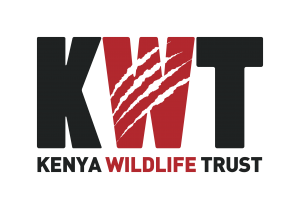We believe that people living alongside predators bear the greatest responsibility when it comes to their conservation. Our predator conservation work is strongly anchored in involving the local people. By supporting community centered projects, we are contributing to the wider efforts needed to ensure healthy ecosystems where predators not only survive, but thrive.
People

Education
KWT believes that increased skills training for young people in protecting and sustaining their home ecosystems is an important dimension of harmonizing the often fractious relationship between predators and the people who live with them.
Our Conservation Leadership Program aims to develop conservation leaders from key wildlife areas where we work in; Amboseli/Tsavo, Samburu/Laikipia, and the Greater Maasai Mara.
The scholarship recognizes, encourages, and promotes leadership among future wildlife conservation and management professionals through supporting their wildlife and conservation-based education.


Conservancy Movement
Community consevancies play an important role in complementing the role of parks and reserves in Kenya. Since inception, Kenya Wildlife Trust has continued to support community conservancies with an aim of ensuring that communities living near the conservancies receive the benefits that come from conservation.
We played an instrumental role in the establishment of the following Conservancies’ Associations:
Kenya Wildlife Conservancies Association (KWCA)
KWCA is the umbrella body for all conservancies in Kenya. Founded in 2012, it aims to work with landowners and communities to sustainably conserve and manage wildlife and their habitat outside formal protected areas for the benefit of the people of Kenya.
Maasai Mara Wildlife Conservancies Association (MMWCA)
As the regional umbrella body for conservancies in the Greater Mara Ecosystem, MMCA strives to foster strength and unity within and among the Mara conservancies on a regional level while raising Mara issues, impact and vision on a national and international level.
MPCP Outreach and Education
Our flagship programme – the Mara Predator Conservation Programme (MPCP) runs community focused inititiatives that are aimed at ensuring that people live in harmony with predators.
Their key activities include:
Wildlife Clubs
Working with Wildlife Clubs of Kenya, MPCP has been running Wildlife Clubs in 9 schools around the Mara. The goal of the clubs is to create and motivate young conservationists to better understand conservation issues and to develop a passion for addressing them.
Barazas
MPCP believes that communities living alongside wildlife are the key stakeholders in conservation. Based on this belief, the team organises community meetings (barazas) around the Mara, to give local people an opportunity to discuss emerging issues affecting them, relating to human-wildlife coexistence and conservation. The outcomes of the barazas form part of MPCP’s management recommendations.
Anti-poison campaign
Closely linked to human-wildlife conflict is the issue of poisoning. To discourage the use of poison by communities to respond to incidences of wildlife coflict by communities, MPCP organizes anti-poison campaigns aimed at sensitizing them on the dangers of posioning. They also train community members on how to respond to wildlife poisoning incidences.
Recyled plastic-pole bomas
MPCP builds predator-proof bomas made of recycled plastic poles and reinforced with chain link to protect communities’ livestock from attacks by predators.


Community Health
Healthy ecosystems are integral to successful conservation efforts. We believe that peoples are an important aspect of having healthy ecosystems.
Our commitment to supporting community health inititiatives is manifested by our long-term support for Communities Health Africa Trust (CHAT) CHAT empowers communities to make healthy choices that, in turn help to protect habitats and wildlife.




